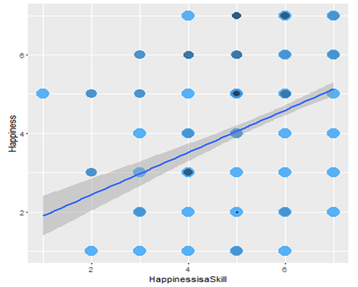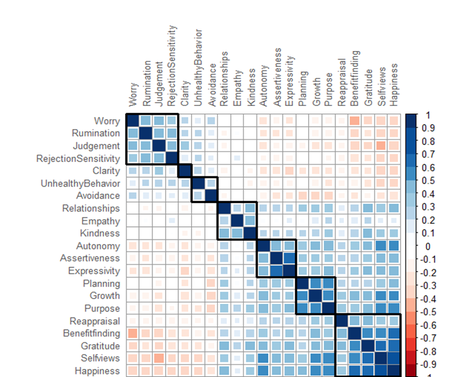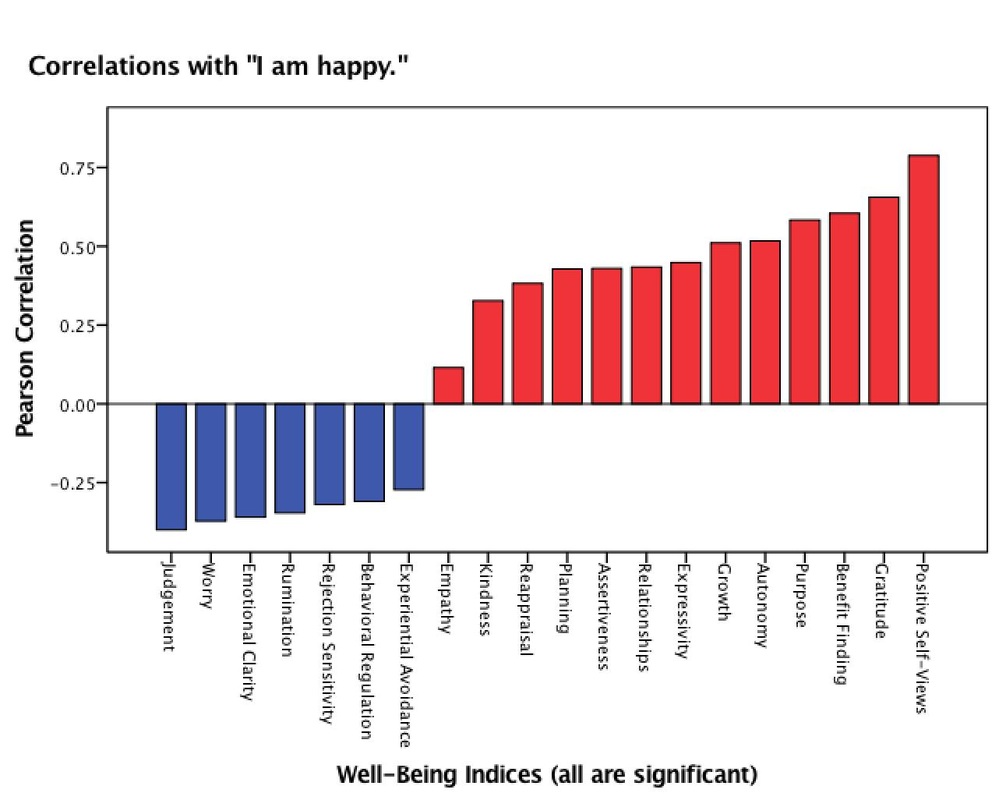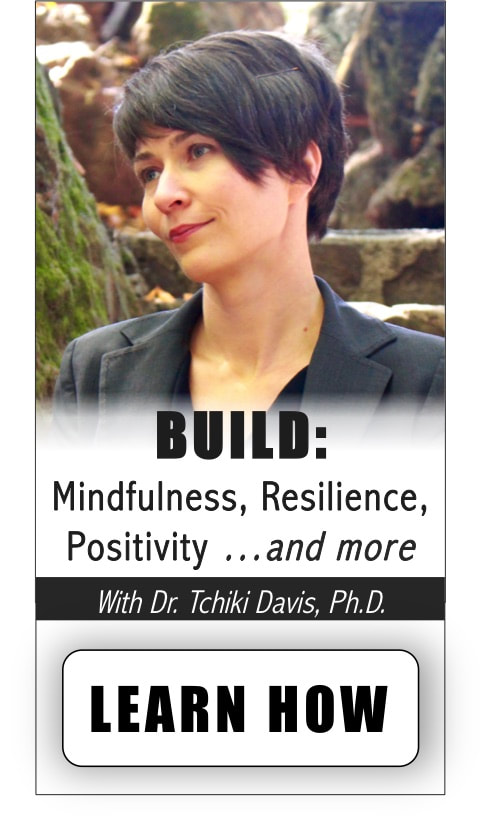|
I am excited to announce that I finally got a chance to analyze the data from my well-being survey. This survey revealed NEW insights into how people can increase their happiness and well-being. Below, I reveal 3 major insights from the data that will help you increase your happiness faster: 1. You need to believe happiness is a skill that can be learned. The research clearly shows that happiness is not something we find - we learn happiness, just like we would learn any other skill. It makes sense when we think about it. We wouldn’t expect to just find being good at algebra or find speaking a foreign language. We know that these are skills that have be learned. But research shows that, just like these others skills, we need to learn how to change, manage, and create our emotional experiences - including happiness.  Our data shows that the more someone believes that happiness is a skill they can learn, the greater their happiness. If we simply believe that happiness is something we can learn, we are likely to be happier. The lesson here is that we need to believe that happiness is a skill before we are able to increase it. 2. There are different types of emotion skills that contribute to happiness.You may know that you need to see the bright side, practice gratitude, or limit worrying to increase your happiness. But how are you supposed to find the time to develop, grow, and practice all these different skills? If you practice building skills that are very different from each other, you can increase your overall happiness more effectively. For example, imagine you want to develop your artistic skills. You could practice drawing with pencils, crayons, and charcoal. You are improving your overall artistic skill a bit by practicing these different drawing skills. But what if instead you practiced pencil drawing, photography, and sculpture. Your artistic skills, overall, would be improved a lot more in the same amount of time. This same logic can be applied to improving your overall happiness. Our data show that some emotion skills are more similar to each other than others. So just like pencil drawing and charcoal drawing are more similar to each other than pencil drawing is to photography, some emotion skills are more similar to each other. We found 7 happiness groups that you can use to more efficiently increase your overall happiness. The Seven Happiness Groups: Negative thinking - The ability not to generate or dwell on negative thoughts and experiences. Emotional intelligence - The ability to understand your emotions and emotional processing. Coping - The ability to resist using unhealthy behaviors to avoid or manage emotions. Social interaction - The ability to develop strong, supportive relationships. Authenticity - The ability to be yourself and live your life your life according to your values. Forward movement - The ability to continue moving forward towards your goals and life purpose. Positive thinking - The ability to respond to life's ups and downs with a positive perspective. Learn 1 emotion skill from each of the 7 happiness groups to more efficiently increase your happiness! 3. Some emotion skills tend to predict happiness more than others. Research shows that many different emotion skills can increase happiness. But which ones are likely to have the greatest impact? “We found that positive self-views was the most related to happiness.” The most impactful emotion skill from each of the 7 groups
Positive self-views - The ability to have self-compassion and positive perceptions of the self. Purpose - The ability to see that your life has meaning. Autonomy - The ability to make your own decisions and take self-directed action. Relationships - The ability to develop relationships with people you enjoy spending time with. Behavioral regulation - The ability to resist using substances, food, or other self-harm to manage emotions. Clarity - The ability to understand your emotions. Judgement - The ability to accept yourself and your emotions, non-judgmentally.
3 Comments
11/1/2016 01:28:57 pm
Just a sincere "thank You" for your work! These well articulated results are every helpful in my counseling work. If i can ever be of help in any of your studies, please don't hesitate to reach out.
Reply
Leave a Reply. |
Welcome to The Berkeley Well-Being Institute Blog!
Categories
All
|
Terms, Privacy & Affiliate Disclosure | Contact | FAQs
* The Berkeley Well-Being Institute. LLC is not affiliated with UC Berkeley.
Copyright © 2024, The Berkeley Well-Being Institute, LLC
* The Berkeley Well-Being Institute. LLC is not affiliated with UC Berkeley.
Copyright © 2024, The Berkeley Well-Being Institute, LLC





 RSS Feed
RSS Feed